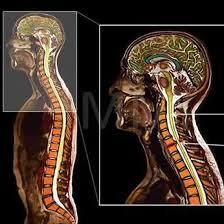Book an Appointment
NCCT Cervical Spine
Medifyhome has collaborated with the best pathology laboratories that are NABL and NABH certified and follow ISO safety guidelines to provide the best NCCT for Cervical Spine at an affordable price for needy individuals.
Non-Contrast Computed Tomography (NCCT) of the cervical spine is an advanced medical imaging technique used to visualize the bones of the neck, specifically the cervical vertebrae, without the use of contrast agents. This imaging method plays a crucial role in diagnosing a wide range of conditions affecting the cervical spine, especially in emergency and trauma settings where a quick, detailed assessment is needed. Unlike traditional X-rays, NCCT provides high-resolution, 3D images, allowing healthcare professionals to detect fractures, dislocations, degenerative changes, and even tumors with greater accuracy. Because it does not require the use of contrast agents, NCCT is often preferred for patients with allergies to contrast materials, kidney problems, or those who require rapid imaging.
NCCT of the cervical spine is particularly valuable in cases of acute trauma, spinal infections, and post-surgical evaluations. It is a non-invasive, relatively quick procedure that helps doctors assess spinal injuries, evaluate treatment progress, and guide appropriate interventions.
To schedule an appointment for an NCCT for Cervical Spine, simply contact Medifyhome or call our customer care at +919100907036 or +919100907622 for more details and queries.
What is NCCT?
SPECT, or Single Photon Emission Computed Tomography, is a special type of imaging that is based on the use of X-rays to create detailed images of the body without using dyes or contrast agents known as NCCT or Non-Contrast Computed Tomography. Unlike conventional CT scans, where the subject might be injected with contrast media to help highlight the tissues of interest, NCCT centres on getting good images based solely on X-ray absorption. NCCT scans are obtained with the help of a series of images collected in one plane with the help of X-ray images. Subsequently, connected images are analysed by a computer to create detailed cross-sections of the area under study. Usual in examinations for fractures, tumors, infections, or diseases that involve bones and soft tissues. It is very useful, especially in an emergency where the assessment has to be done very fast. The application of NCCT scans is usually rapid and therefore is favorable in emergency cases. Especially beneficial for reading particularities at the joints, such as fingers and wrist bones, spine, etc. Assists in diagnosing tumours that affect the bones, infections, as well as degenerative diseases. Does not require the use of contrast agents to identify trauma or acute conditions in the first instance.
Indications for NCCT of the Cervical Spine
Non-Contrast Computed Tomography (NCCT) of the cervical spine is a valuable diagnostic tool, especially in emergencies or when other imaging techniques may not be suitable. Below are key indications for using NCCT of the cervical spine:
- Trauma and Injury
Cervical Spine Fractures: NCCT is commonly used in trauma cases to identify fractures or fractures-dislocations of the cervical vertebrae. This is particularly critical after motor vehicle accidents, sports injuries, or falls, where there may be a risk of spinal cord injury.
Suspected Dislocations: When there is a concern that the cervical vertebrae may be displaced or misaligned due to an injury, NCCT helps visualize dislocations or subluxations.
- Acute Neck Pain
Unexplained Neck Pain: For patients experiencing sudden, severe neck pain or stiffness, NCCT is often used when X-rays are inconclusive, to evaluate possible fractures, alignment issues, or bony abnormalities.
Radiculopathy: If a patient exhibits symptoms like radiating pain, weakness, or numbness in the arms, NCCT can help identify cervical spine issues like foraminal stenosis, disc herniation affecting the nerve roots, or degenerative changes.
- Post-Surgical Evaluation
Assessing Surgical Outcomes: After cervical spine surgery, NCCT is used to evaluate the position of spinal hardware (e.g., screws, plates), assess the alignment of the vertebrae, and identify potential complications like infection or fracture of surgical implants.
Evaluation for Complications: NCCT can help identify complications such as hardware failure, fusion failure, or the development of new fractures after spinal surgery.
- Bone Degeneration and Spinal Alignment
Cervical Spondylosis (Arthritis): In patients with suspected degenerative disc disease or arthritis, NCCT can help visualize joint degeneration, osteophytes (bone spurs), and narrowing of the intervertebral spaces.
Spinal Alignment Issues: NCCT is effective in identifying misalignments or abnormal curvatures such as kyphosis (forward bending of the spine) or lordosis (excessive inward curvature).
- Infections and Inflammatory Conditions
Spinal Infections (Osteomyelitis): NCCT can help diagnose bone infections in the cervical spine, such as osteomyelitis, by showing changes in bone structure, abscess formation, or vertebral destruction.
Discitis: In cases of suspected discitis (infection of the intervertebral disc), NCCT may reveal changes in the vertebrae or space between the discs indicative of infection.
Benefits of NCCT for Cervical Spine Imaging
Non-Contrast Computed Tomography (NCCT) is an invaluable imaging technique for evaluating the cervical spine, particularly in emergency and trauma settings. Below are the key benefits of using NCCT for cervical spine imaging:
- Detailed Bone Visualization
Superior Bone Imaging: NCCT is especially effective at providing high-resolution images of bone structures in the cervical spine. This allows for detailed visualization of fractures, misalignments, degenerative changes, and bone lesions.
Fracture Detection: It excels at detecting fractures, subluxations, and dislocations in the cervical vertebrae, making it the go-to imaging tool in trauma situations.
- Quick and Non-Invasive
Speed of Diagnosis: NCCT scans are faster than MRI, making them ideal in emergency and trauma settings where rapid diagnosis is critical. This speed allows for quicker decision-making, leading to timely treatment and interventions.
Non-Invasive: Like all CT scans, NCCT is a non-invasive procedure. It does not require any surgical intervention or incisions, reducing the risk of complications and allowing patients to avoid the discomfort associated with more invasive tests.
- No Contrast Agents Required
Avoids Allergic Reactions: Unlike contrast-enhanced CT scans or MRI, NCCT does not require the use of iodine-based contrast agents. This eliminates the risk of contrast allergies or adverse reactions in patients who may be sensitive or have contraindications to contrast media.
- Ideal for Bone-Related Issues
High Bone Resolution: NCCT provides excellent resolution for bone fractures, degenerative changes, and joint abnormalities. It is particularly effective at detecting bone fractures, osteophytes (bone spurs), and spinal misalignments associated with conditions like arthritis or spondylosis.
Osteomyelitis Detection: NCCT is sensitive to bony changes caused by infections, such as osteomyelitis (bone infections), and can help identify abscesses or localized bone destruction.
- Effective in Trauma and Emergency Situations
Trauma Assessment: In cases of cervical spine trauma (e.g., car accidents, sports injuries, falls), NCCT is often the imaging modality of choice to quickly detect fractures, dislocations, and spinal cord injuries. It is especially useful for patients who are unable to undergo MRI due to contraindications (e.g., pacemakers, claustrophobia).
What Can NCCT of the Cervical Spine Detect?
Non-Contrast Computed Tomography (NCCT) of the cervical spine is an advanced imaging technique that provides high-resolution, detailed images of the cervical vertebrae and surrounding structures. Below are the key conditions and abnormalities that NCCT of the cervical spine can detect:
- Fractures and Dislocations
Cervical Spine Fractures: NCCT is highly sensitive in detecting fractures in the cervical vertebrae. It can reveal vertebral body fractures, spinous process fractures, facet joint fractures, and compression fractures.
Fracture-Dislocations: In cases of trauma, NCCT can detect both fractures and dislocations, helping assess whether the vertebrae have become displaced, which can be a major cause of spinal cord injury.
- Bone Deformities and Congenital Abnormalities
Congenital Anomalies: NCCT is effective in diagnosing congenital deformities of the cervical spine, such as Klippel-Feil syndrome or cervical ribs.
Spinal Curvature Abnormalities: NCCT can also detect abnormal curvatures like kyphosis or lordosis, which may contribute to neck pain or mobility issues.
- Degenerative Changes
Cervical Spondylosis: NCCT can reveal degenerative changes associated with aging, such as osteophytes, disc space narrowing, and changes in the intervertebral joints.
Disc Degeneration: While MRI is more commonly used to evaluate soft tissues like intervertebral discs, NCCT can still detect bony changes associated with degenerative disc disease and spinal stenosis.
Cervical Stenosis: NCCT can detect narrowing of the spinal canal or neural foramina due to bony overgrowth or degenerative changes, which may lead to nerve compression.
- Spinal Tumors and Bone Lesions
Primary Bone Tumors: NCCT can identify primary tumors of the cervical spine, such as osteosarcoma or chondrosarcoma, by revealing changes in bone density or unusual growth patterns.
Secondary Bone Tumors: NCCT is useful in detecting metastatic lesions that have spread from other parts of the body. These can appear as bone lesions or areas of bone destruction.
Bone Cysts: NCCT can also identify bone cysts or abnormal growths in the vertebrae, which may be benign or require further investigation.
- Spinal Infections
Osteomyelitis: NCCT can detect infections in the cervical spine, such as osteomyelitis. This is particularly important for identifying areas of bone destruction or abscess formation.
Discitis: While MRI is preferred for soft tissue infections, NCCT can detect bony changes associated with discitis, such as erosion or collapse of the vertebral bodies.
- Test Type: NCCT For Cervical Spine
- Preparation:
- Wear a loose-fitting cloth
- Fasting not required
- Carry Your ID Proof
- Prescription is mandatory for patients with a doctor’s sign, stamp, with DMC/HMC number; as per PC-PNDT Act
- Reports Time: With in 3-4 hours
- Test Price: Rs.3000
How can I book an appointment for an NCCT for Cervical Spine through Medifyhome?
To schedule an appointment for an NCCT for Cervical Spine, simply contact Medifyhome or call our customer care at +919100907036 or +919100907622 for more details and queries.
What is the NCCT of the cervical spine?
Non-Contrast Computed Tomography (NCCT) of the cervical spine is a type of CT scan used to create detailed images of the bones in the neck. Unlike other imaging techniques, it does not require the use of contrast agents, making it safer for patients with allergies or kidney issues.
When is NCCT of the cervical spine recommended?
NCCT is commonly recommended for patients with:
- Trauma to detect fractures or dislocations.
- Acute neck pain or suspected spinal injuries.
- Post-surgical evaluation to check for hardware stability or complications.
- Degenerative spine conditions.
- Infections or tumors affecting the cervical spine.
How does NCCT differ from regular X-rays or MRI?
X-rays: Less detailed than NCCT, and primarily show bone structures. They may miss small fractures or soft tissue abnormalities.
MRI: Provides better detail for soft tissues, but takes longer and may not be suitable for patients with metal implants.
NCCT: Provides high-resolution bone images, is quicker than MRI, and doesn’t require contrast agents, making it ideal for trauma and acute conditions.
Is NCCT safe?
Yes, NCCT is considered safe for most patients. However, it involves exposure to ionizing radiation, so it should be used judiciously, especially in children or pregnant women. The benefits of diagnosing potentially life-threatening or serious conditions usually outweigh the risks, but safety protocols are always followed.
Does NCCT of the cervical spine require preparation?
Generally, no special preparation is required for NCCT of the cervical spine. You may be asked to remove jewelry, glasses, or any metal objects that could interfere with the imaging. Unlike contrast-enhanced CT or MRI, there are no dietary restrictions or a need for fasting.
How long does the NCCT procedure take?
The actual NCCT scan typically takes about 10 to 15 minutes. The time may vary depending on the complexity of the imaging, but the process is relatively quick and non-invasive.
What conditions can the NCCT of the cervical spine detect?
NCCT is particularly effective at detecting:
- Fractures, dislocations, and misalignments in the cervical vertebrae.
- Degenerative changes like osteophytes, disc degeneration, and spinal stenosis.
- Bone tumors.
- Infections such as osteomyelitis or discitis.
- Congenital deformities and spinal alignment issues.
Can NCCT detect soft tissue problems like herniated discs or ligament injuries?
NCCT is primarily focused on visualizing bone structures. While it can detect some indirect signs of soft tissue issues, it is not as effective as MRI for evaluating soft tissues like discs, ligaments, or spinal cord structures.
Most Booked Ct Scan Parts
With Medifyhome, book a CT scan get the fastest appointment scheduling at NABH & ICMR Certified diagnostic centers near you. Trusted reports, expert radiologists, and seamless service-only a click away!
Why Choose Medifyhome for NCCT Cervical Spine?
Medifyhome is an online medical consultant that provides home-based medical services not only in your area but also in most cities in India, including Hyderabad, Chennai, Mumbai, Kolkata, and more. We have collaborated with diagnostic centers that have the best machines and equipment to ensure you get accurate results. Medifyhome provides 24-hour customer service for booking the appointment of the services and guides you with instructions. Medifyhome also provides the best diagnostic centers at low prices. Once you receive your test results, you can easily book an appointment with our network of experienced doctors for consultation. To schedule an appointment for an NCCT for Cervical Spine, simply contact Medifyhome or call our customer care at +919100907036 or +919100907622 for more details and queries.













